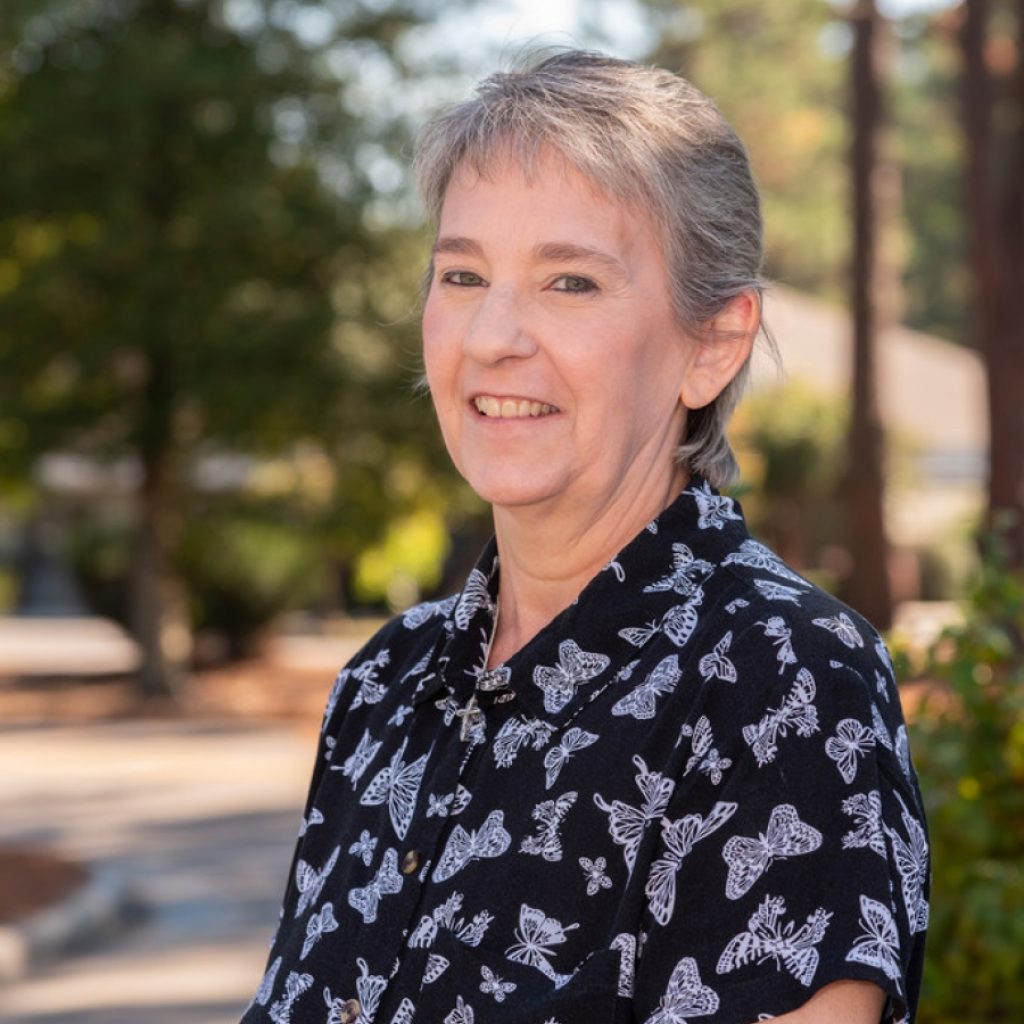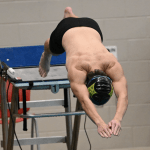
PINEHURST — Elizabeth Stewart was recently retired and adapting to a new pace of life, with her only child away at college, when she found a lump in her breast.
The 53-year-old resident of McColl, South Carolina, scheduled a checkup with her nurse practitioner and, after a same-day ultrasound and mammogram, was diagnosed with stage three breast cancer that had spread to her lymph nodes.
That was last September, and Stewart has since gone through two rounds of chemotherapy, radiation and a left mastectomy, all with a warrior’s spirit.
“I fell apart when I was diagnosed,” she said. “I didn’t think I was strong enough to go through treatment. I convinced myself I was going to die, until I told my husband and daughter. Seeing how my diagnosis impacted them and their lives made me mad and that’s when the tide turned. I decided to attack the cancer rather than let it attack me.”
Her primary care provider referred her to FirstHealth of the Carolinas for treatment, and the first step in Stewart’s fight plan was to meet with Pinehurst Surgical Clinic surgeon Raymond Washington, M.D., who works with FirstHealth, for a breast surgery consultation. She was open to all suggestions, if it meant being rid of cancer, and appreciated his transparency about her options.
“Before I left, Dr. Washington told me he was meeting with an oncologist, radiologist and pathologist at 7 a.m. the next morning to get a plan together,” she said. “Sure enough, he called me at 7:15 a.m. and updated me on the course of treatment.”
Her next appointment was with Thomas Richard, M.D., a medical oncologist and hematologist with FirstHealth, who Stewart said made her feel immediately comfortable and explained all procedures step by step. Two days later, she had a small, implantable device called a chemo port inserted, which eliminates needle sticks and allows chemotherapy medications to be delivered into the port. She would complete a round of chemo prior to undergoing a left mastectomy, in hopes that the tumor would shrink and leave more healthy tissue after surgery.
Stewart said she was blessed by her body’s mild reaction to chemo, especially considering she received Doxorubicin, known as the red devil for its intensity and red hue. Another upside was spending time with the nurses at the FirstHealth Outpatient Cancer Center.
“It’s weird to think I actually enjoyed my time doing chemo, but I missed the nurses when I completed my sessions,” she said. “They were such positive and compassionate professionals. I got to know them well enough to laugh and joke with them, and it amazed me how they would remember every patient.”
The support of the nurse navigators, dietitians and pastoral care staff were additional aspects of treatment Stewart appreciated. “You can’t do it on your own. It takes a team. I had to learn to let people help me, and to take advantage of all the support and resources offered,” she said. “My nurse navigator, Lynn, was an important part of my journey and a huge help with notetaking, verifying insurance and guiding me to all the resources available.”
In April, she had a left mastectomy, performed by Dr. Washington, followed by radiation and Xeloda chemotherapy pills. Although she had painful burns near the end of radiation, due to intensely treating aggressive cancer, Stewart said the radiation oncologists met with her frequently and ensured it was safe to continue treatment.
Stewart now continues to take Xeloda and said her body has recovered well from the intense medications. Her care team continues to meet and offer support when needed.
“The whole team has continued to treat me throughout the process, which is amazing,” she said. “They didn’t just hand me off to someone else. They communicate regularly about my case and I think it has provided me with the best care I could’ve received.”
After a career with the South Carolina Department of Social Services, where she worked as a fraud investigator, Stewart is now able to enjoy retirement and spend time gardening, remodeling her house, and going to the beach with her husband, Brian, and their daughter, Meredith.
As she enjoys retirement, Stewart said she is also appreciative of the new outlook on life the past year has given her, an outlook she can bring with her in the next chapter of life.
“I’ve learned so much about myself going through this. It’s shown me what I can do; that I am strong enough,” she said. “I hope I’m able to encourage someone else to fight, to be a voice that resonates with them and helps them through the darkest days. People need to know they can get through it. You can fight cancer and come out the other end a better, stronger and more confident person.”

